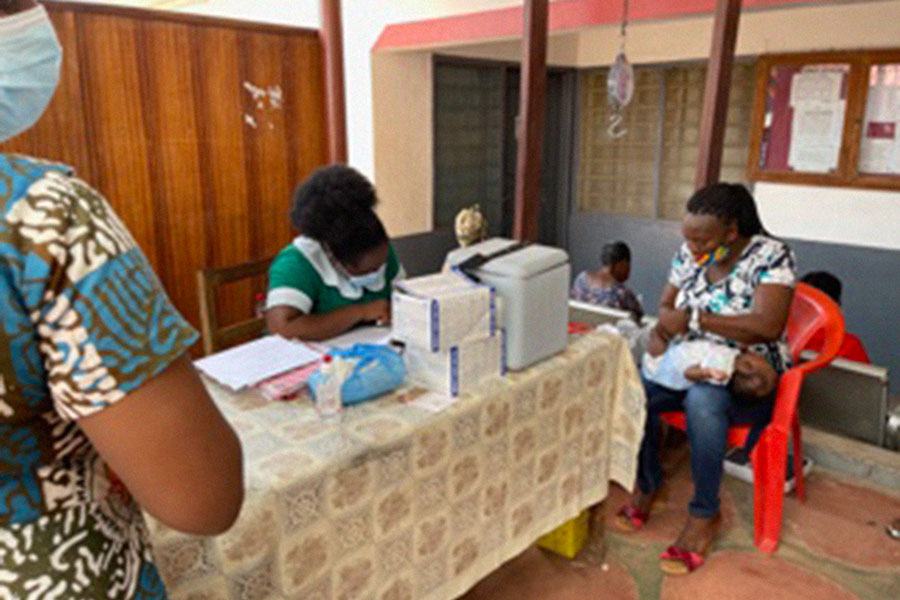Bringing routine immunisation back into focus in Ghana
Community health nurses in Ghana are on a mission to reverse the decline in routine immunisation since the start of the COVID-19 pandemic.
- 19 October 2021
- 3 min read
- by Nanama Boatemaa Acheampong

Following the declaration of the COVID-19 as a pandemic in March 2020, many countries went into lockdown to help curb the spread of the disease. Health workers and facilities were reallocated to assist in the fight. These measures, combined with fear of contracting the virus, led to a decline in people using basic health services, including routine immunisation of babies.
“We were getting roughly 80 mothers a day, but last year, we saw a sharp decline in this number. It went down to about 30 to 35 mothers a day.”
Esther Adombire is a community health nurse at the public health ward of the 37 Military Hospital in Accra, Ghana. “Before the pandemic, mothers were coming in their numbers to immunise their babies,” she says. “We always had time to take them through an introductory talk about what to expect, especially with regards to weight monitoring and the development of their babies. We were getting roughly 80 mothers a day, but last year, we saw a sharp decline in this number. It went down to about 30 to 35 mothers a day.”
“The mothers were afraid to come to the hospital because they believed they would contract COVID-19, since patients who had the virus were being treated on the same grounds. Many of them defaulted on their immunisation schedules, and those that did come in wanted their babies to be rushed through the weighing and immunisation process so they could quickly go back home where they felt safer.”
In Ghana, the Expanded Programme on Immunisation (EPI) has contributed to a major reduction in infant mortality since its adoption in 1978. Realising that something needed to be done to get immunisation numbers back up, Esther and her colleagues around the country got to work.
Have you read?
“We have intensified our home visits programme and we sit down with mothers to listen to their concerns,” Esther says. “We talk to them about how to protect themselves at home and what to do once they get to a health facility, to avoid getting COVID-19. We explain social distancing and why they need to wear masks in public, as well as the other protocols, and we encourage them to share all the information with their friends who we aren’t always able to reach.”
While Esther and her colleagues do not yet have the resources to visit every mother on their roster, they employ technology to stay in touch.

Esther says, “we have the numbers of most of the mothers, and we have added them to different WhatsApp groups depending on the age of their babies and their schedules. Through the app we are able to give them advance notice of their appointments and answer any questions they have for us.
“Presently, the number of mothers coming in is encouraging; we’re almost back to the numbers we were seeing before the pandemic. This is a step in the right direction.
“As we encourage the general public to take the COVID-19 vaccine, we must continue to advocate for children, whose lives are equally important. Without routine immunisation, babies are at a high risk of contracting childhood killer diseases, so we must get them immunised to protect them from preventable death.”
More from Nanama Boatemaa Acheampong
Recommended for you








